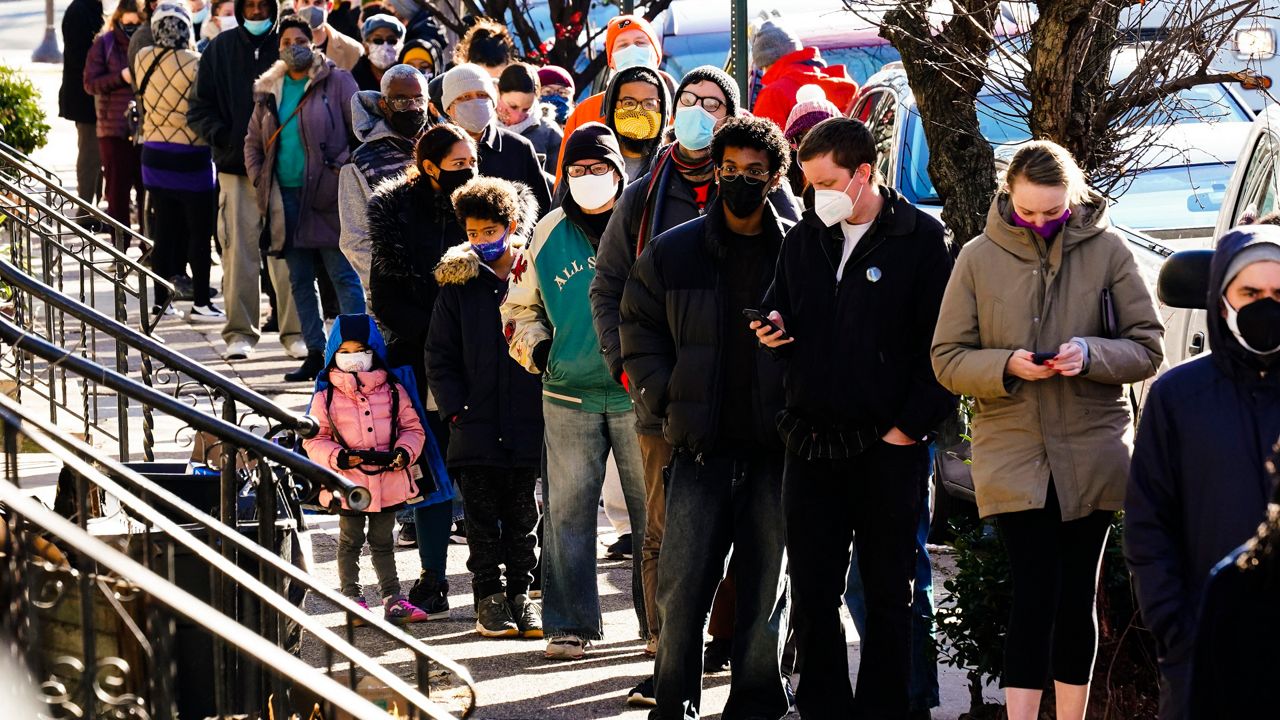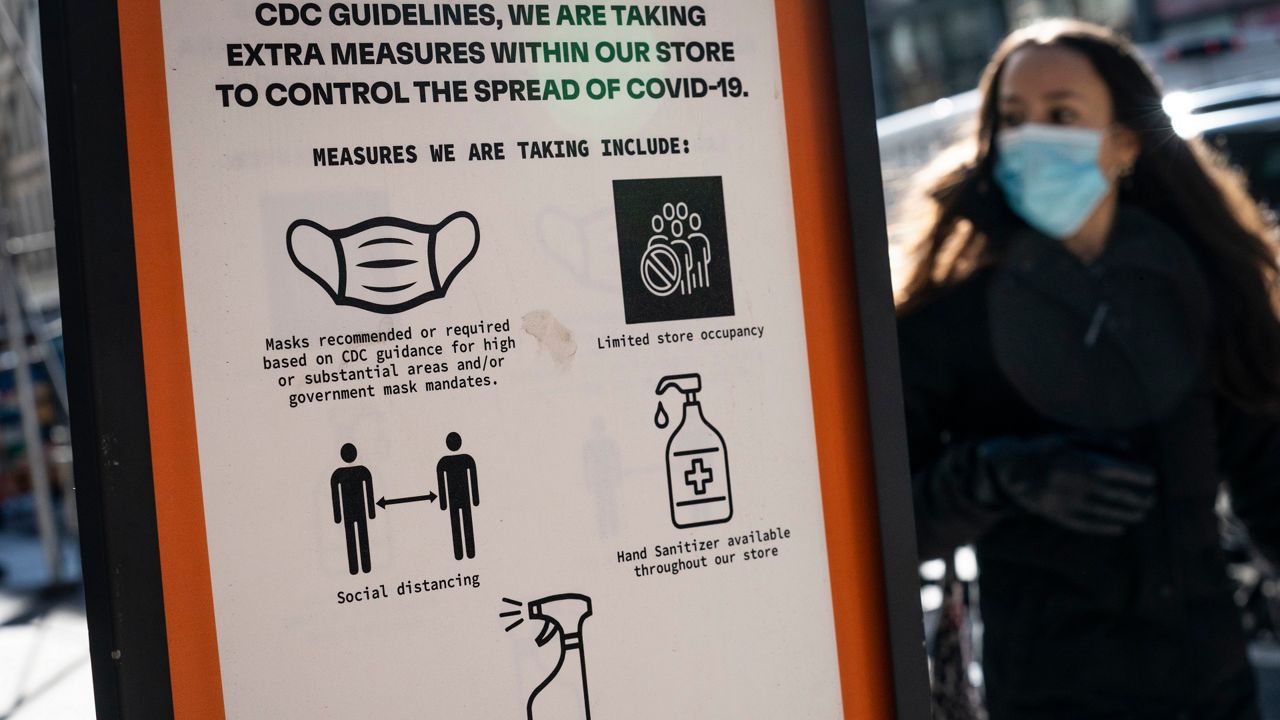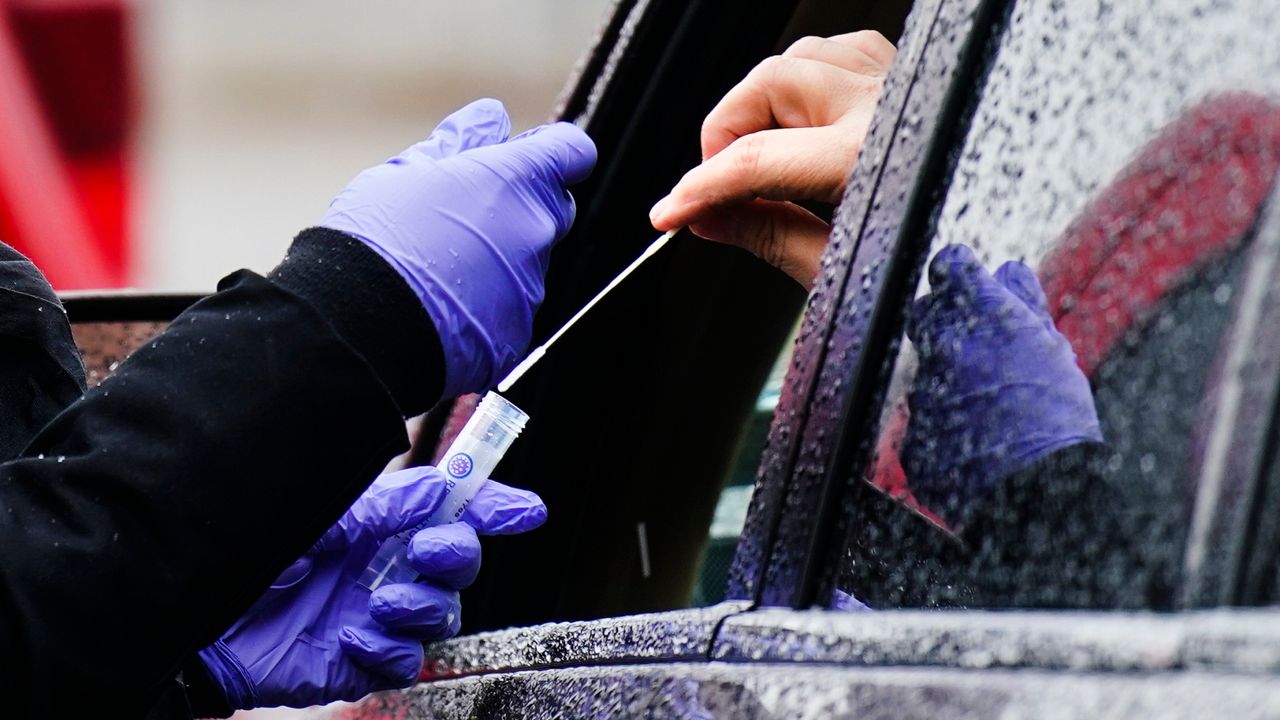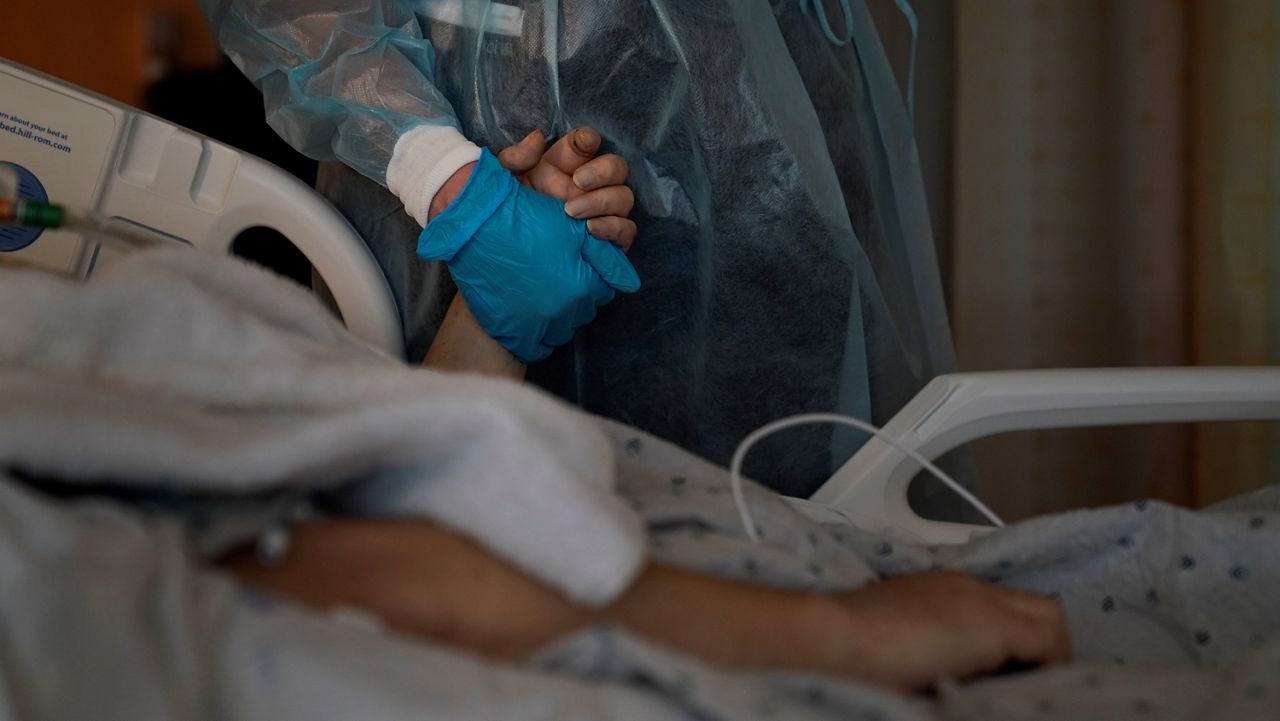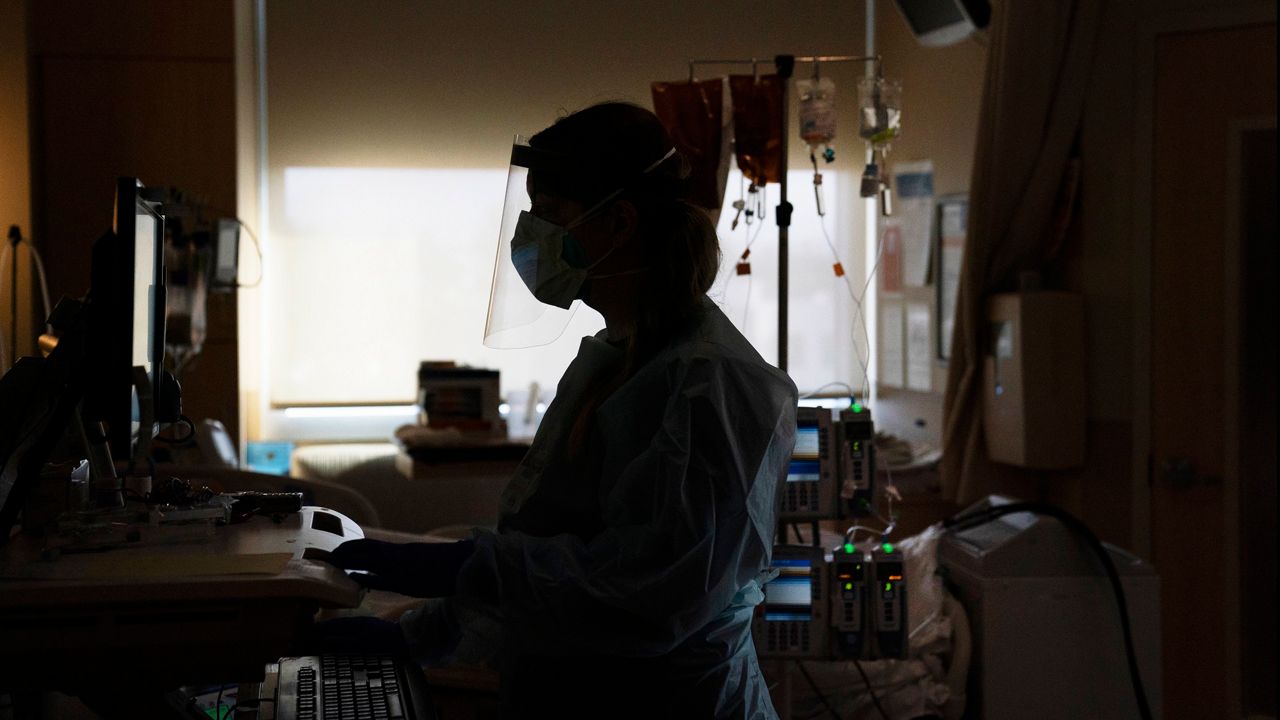MILWAUKEE — Yet another version of the novel coronavirus has swept the world.
Over the past two years of the pandemic, we’ve seen the SARS-CoV-2 virus change up on us quite a few times — from the alpha variant that raised alarm in the spring to the delta variant that fueled our latest surge. Now, omicron is on the rise, and has quickly become the dominant variant in the U.S.
With the COVID-19 pandemic still raging on, we shouldn’t be surprised to see the coronavirus keep transforming, experts say. Here, we break down the science behind the ever-changing virus, and what makes some variants so concerning.
Why does the virus keep changing?
The fact that the SARS-CoV-2 virus is mutating comes as no surprise. Mutations on their own are a very normal part of the life cycle, explained Luis Haddock Soto, a PhD student at UW-Madison.
“Viruses evolving and acquiring mutations is something that happens naturally, for basically all organisms,” said Soto, who has been working on genetic sequencing during the COVID-19 pandemic.
When you get infected with a virus, that virus spreads by hijacking your cells to make a bunch of copies of itself and try to spread to other people.
But not every copy is perfect. Sometimes, the virus makes mistakes, and the genome of the new copies will look slightly different from the original.
The novel coronavirus actually does have a “proofreading” process to sort out some of these mistakes, Soto said. But it's far from a perfect editor — it’s more like a spellcheck tool that misses a lot of typos, said Nick Minor, a research specialist at UW-Madison.
“It will catch a few of them and help you fix some of them, but there will still be a lot of mistakes left over,” said Minor, whose background is in evolutionary genomics.
Those mistakes can add up quickly. At this point in the pandemic, “it’s been circulating for at least two years that we know of,” Soto said. “And the time between generations is a couple of hours” — which means the virus has had many, many, many chances to mutate.
What can make a new variant more dangerous?
Not every mutation makes a big difference for how the virus behaves. But every so often, the changes in its genome will give the virus some advantage, Soto said.
One big advantage: Being able to spread faster. We’ve seen new coronavirus variants “out-compete” each other by becoming more contagious, Minor said — from alpha to delta to, apparently, the new omicron variant, which has rapidly taken over in the U.S.
Since there are a lot of steps for the virus to spread — from latching onto your cells and breaking in, to finding the tools it needs and making its copies — there are a lot of ways to make the process more efficient, Minor said.
“Any mutations to any parts of the genome that influence any part of that long chain of steps, can potentially increase the transmissibility of a given virus,” he said.
Some changes might make the process more reliable, like getting the virus to bind more closely with your cells, Soto said. Others might make the process happen faster, like letting the virus churn out copies more quickly.
Another big advantage for a variant is being able to dodge the immune system’s defenses — especially now that many people have some immune protection from vaccines or past COVID-19 infections.
Changes on the spike protein are especially important for immune evasion, Minor said. The spike is what the virus uses to latch onto your cells, and it also seems to be a main target for your antibodies to find the virus and attack it.
If a variant racks up enough mutations on that spike protein, it may look so different that antibodies will have a harder time tracking down the virus and doing their job to stop it, Minor said. (That’s one of the reasons omicron started raising alarm bells early on: It has a high number of mutations, including 30 on its spike protein.)
“So you may have antibodies,” Minor said. “But those antibodies are unable to neutralize the virus and prevent it from infecting your cells, and replicating in your cells, and spreading to new cells.”
What is a variant of concern?
The World Health Organization keeps tabs on reported variants across the world.
The ones that seem poised to cause the biggest problems get labeled “variants of concern” and identified with a Greek letter. Currently, there are five variants of concern on the list: Alpha, beta, gamma, delta and omicron.
To figure out which variants make the cut, scientists have to take multiple kinds of evidence into account, Minor said, from real-world data to genetic sequences to lab experiments.
Scientists pay special attention to variants with certain changes in the genome that seem like they could change how the virus behaves — like making it more contagious or severe. They can also test out how fast a virus replicates or stacks up against antibodies in the lab, Minor said.
But to become a variant of concern, the mutated virus has to show some real-world effects, too, Soto said. A variant of concern has to change the virus’s behavior “at a degree of global public health significance,” according to the WHO.
“You can observe a lot of mutations. And in theory, you can predict what these mutations can do,” Soto said. “But you won't know the actual effect of these mutations until you see how this variant behaves in a population.”
Do vaccines still work against coronavirus variants?
The short answer is yes — to an extent.
So far, none of the variants of concern have been able to totally get around the protection from our COVID-19 vaccines. Health officials are still urging people to get their shots, including booster doses, as cases surge in the U.S.
But some of the variants, including omicron, have seemed to put a damper on the vaccines’ super-strong effectiveness. Research so far has suggested that two shots of a Pfizer, or Moderna vaccine don’t perform as well at stopping omicron infections, compared to other versions of the virus.
There are a few key points to keep in mind here. One is that antibody effectiveness isn’t all-or-nothing, Minor pointed out.
“It's definitely a question of degree and not a binary kind of thing, where your antibodies either bind or they don't bind,” he said. “There's a whole spectrum of possibilities.”
With a mutated variant, it may be the case that antibodies still recognize the virus, but can’t bind as well to stop it from getting into cells, Soto said. So, it may just take a higher number of antibodies to put a stop to the virus’s spread.
That’s why boosters might play a key role: They rev the body up to make more antibodies and “re-prioritize” the SARS-CoV-2 virus, Minor said.
In the months after you come across the coronavirus — whether from an infection or a COVID-19 vaccine — your level of antibodies starts to wane, Minor explained. But another vaccine dose can bring SARS-CoV-2 back to the forefront.
“If you get a booster, you're basically telling your immune system, ‘Hey, this is still something you very much need to be concerned about,’” Minor said. “Keep making the same antibodies that you were making before, and try out new kinds of antibodies.’”
COVID-19 infections aren’t all-or-nothing, either. Though variants, like omicron, may be able to infect more vaccinated people, the shots still offer strong protection against the disease’s worst outcomes — so an infection is more likely to lead to mild symptoms instead of deadly ones.
“Even if you get a breakthrough infection, the odds that it's going to progress into really severe disease is highly reduced,” Minor said. “And that is still the case for omicron.”
How do we stop more variants from showing up?
Essentially, it comes down to how much of the population has immunity against COVID-19, Minor said. The more the virus keeps spreading, the more chances it has to keep mutating and potentially to create new, concerning variants.
Stopping those variants, and ending the pandemic, will take a “big team effort,” he and Soto said — from scientists studying the virus to everyday people taking precautions against it.
Some experts have stressed that the team effort has to be global. Since variants can quickly spread between countries, global vaccine inequity puts everyone at risk: “No one is safe until we are all safe,” as some scientists have put it.
In a perfect world, we’ll end up with a high level of widespread immunity, quick response to any outbreaks and plenty of genomic surveillance to keep tabs on any viral mutations, Minor said.
“Eventually, we will get to a place where the virus will still be with us,” he said. “But most people that it encounters will not have a serious reaction to it, because their immune system recognizes it and deals with it. I mean, the question is just how long it'll take before we get there.”





